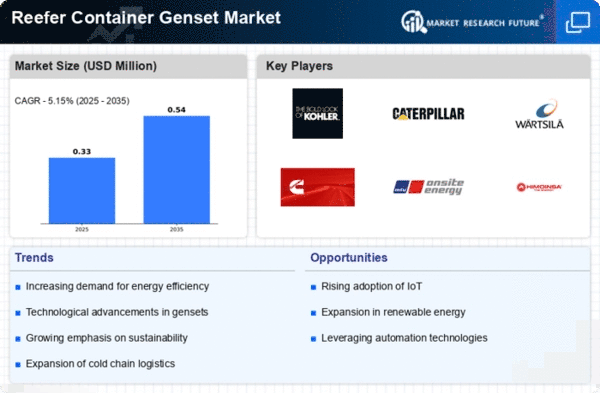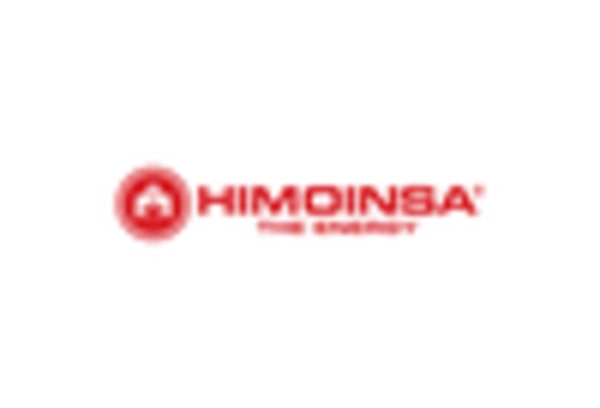Market Trends
Key Emerging Trends in the Reefer Container Genset Market
Reefer containers, specialized insulated and refrigerated shipping containers, play a crucial role in transporting a wide range of perishable goods, including fruits, fish, meat, vegetables, dairy products, flowers, medications, and chemicals. These containers are designed to maintain specific temperature conditions, ensuring the safe transit of goods that require controlled environments. Reefer containers are capable of maintaining freezing temperatures as low as minus 60°C, and they incorporate dehumidification systems to regulate humidity levels, preserving the freshness of flowers and preventing the rotting of fruits during extended journeys.
These containers possess the capability to regulate temperatures even in challenging conditions, keeping items warm at 30°C regardless of external weather conditions. Unlike conventional transportation methods that involve lengthy passages through highways, reefer containers have revolutionized freight shipping, providing a reliable and time-efficient means of transporting goods without the risk of spoilage. The introduction of reefers has significantly contributed to the growth of the global cold chain, facilitating the transportation of both edible and non-edible goods within specified timeframes without compromising quality.
In recent years, the demand for reefer containers has surged, driven by the advantages they offer in terms of low shipping costs, quick cargo transshipment, and fast terminal turnaround times. The market for reefer containers has witnessed increased utilization due to enhanced security against theft and spoilage, replacing temporary warehouses and reducing labor and packaging expenses.
The production of reefer containers faced a temporary halt in 2016, causing shortages in various regions, but it resumed and increased in 2017 and 2018. The seaborne refrigerated cargo market expanded by 3% in 2018, reaching 129 million tons, with a corresponding rise in the demand for reefer containers.
The growth of the refrigerated transport market is further propelled by increased global trade in perishable commodities, facilitated by lower tariffs and increased customer preference for chilled food products. The expansion of trade routes in the maritime sector, such as the new land-sea freight route connecting Indonesia with southwest China, is expected to drive significant demand for reefer containers.
Moreover, technological advancements in refrigeration systems, particularly those developed by companies focusing on environmentally friendly solutions, are anticipated to contribute to the growth of the refrigerated transport market. The rising demand for nutritious food, the need to extend the shelf life of perishables, and the cost-effectiveness of sea transportation are additional factors expected to drive the expansion of the reefer industry.
The multifaceted advantages offered by reefer containers, coupled with the evolving landscape of global trade and technological advancements, contribute to the growing demand for reefer containers and, consequently, the reefer container genset market.


















Leave a Comment